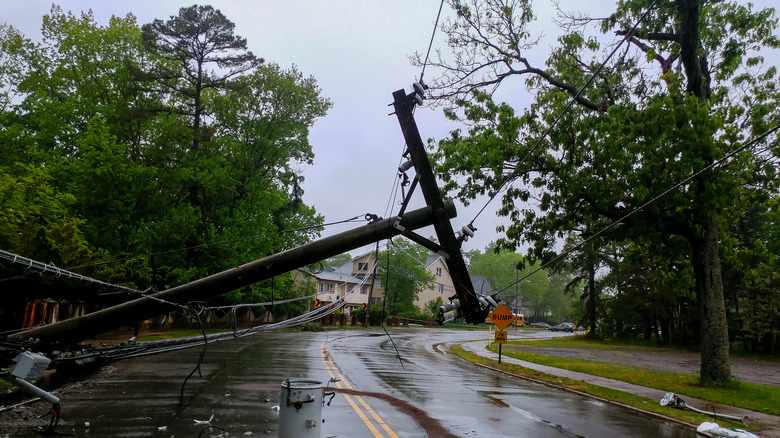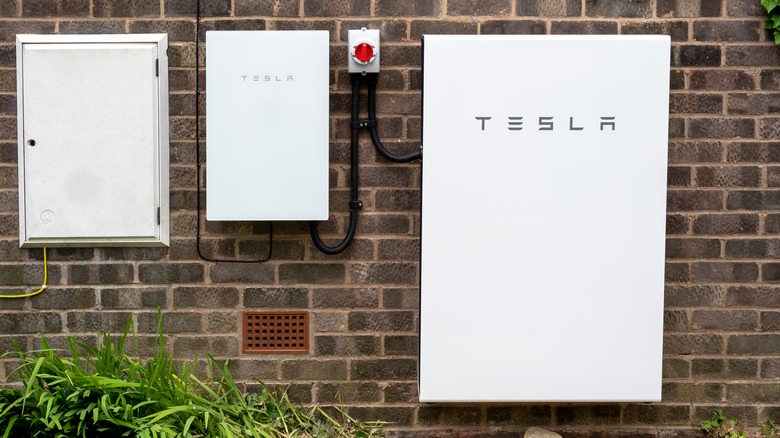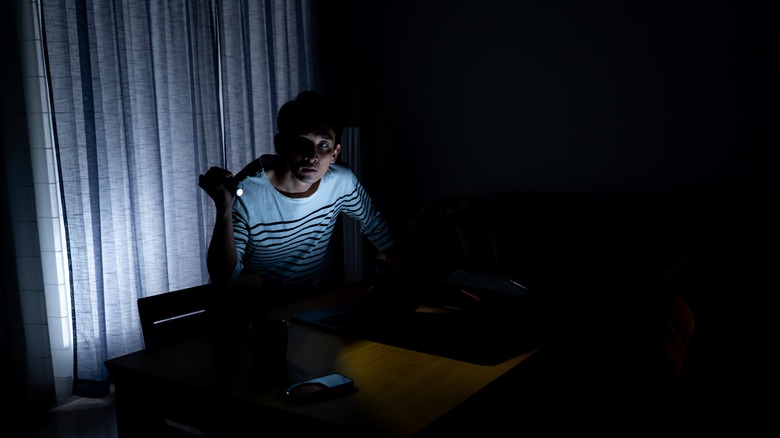What Is A Whole-House Battery Backup And Should You Get One?
As the average summer temperature continues to increase, rolling blackouts will, too. According to NERC, the US was predicted to have insufficient resources to keep up with energy demand in the summer of 2022 because of higher than normal summer heat combined with drought conditions. As scientists continue to study the effects of global warming, summers are expected to get hotter and last longer, states NBC News.
Rolling blackouts can happen anywhere, but urban areas are most likely to experience them. Of course, the excessive demand on the power grid is not the only reason you might lose electricity in your home. Storm damage, a vehicle hitting a power pole in your neighborhood, or simply a broken tree branch can leave you without power for hours or even days. A whole-house battery backup can keep the lights on when the power is out but is it the right choice for you?
Benefits of a battery backup
Gas-powered generators have historically been a popular option to deal with power outages, but when not used properly, they pose a risk of carbon monoxide poisoning and they can use a lot of fuel. Whole-house battery backups are safer and are more efficient, and better for the environment, according to CNET.
Although their primary purpose is to keep you comfortable during a power outage, whole-house battery backups can also save you money. When connected to a solar panel, they can store energy which you can use during times of peak usage if you are on a time-of-use electrical plan.
A professional must install a whole-house battery backup, but after that, they are exceptionally low-maintenance. They are also unobtrusive. This product can be conveniently installed on a wall or a floor and is only about the size of a small bookcase. Thanks to their low-maintenance requirements and slim design, a whole-house battery backup can literally be out of sight and out of mind.
Limitations of battery backup
There are some other considerations for installing a whole-house battery backup. One is the cost. Up front, this type of backup power system costs considerably more to install than a standby generator, states Energy Sage. While you can recoup those costs over time with fewer maintenance fees and fuel costs, it is a significant investment in the beginning.
Perhaps the most important consideration when contemplating buying a whole-house battery backup is how long it can operate. Battery backups come in different sizes, but most batteries programmed for emergencies only last around 24 hours, according to Lumin. Larger whole-house batteries and those connected to solar panels may last longer.
If you live in an area where your most common power outages are caused by rolling blackouts that last a few hours, a whole-house battery system may be right for you. In contrast, CNET states that for areas prone to storm damage and extended power outages, a generator can offer electricity for up to 3 weeks if you have enough fuel to keep it running.


